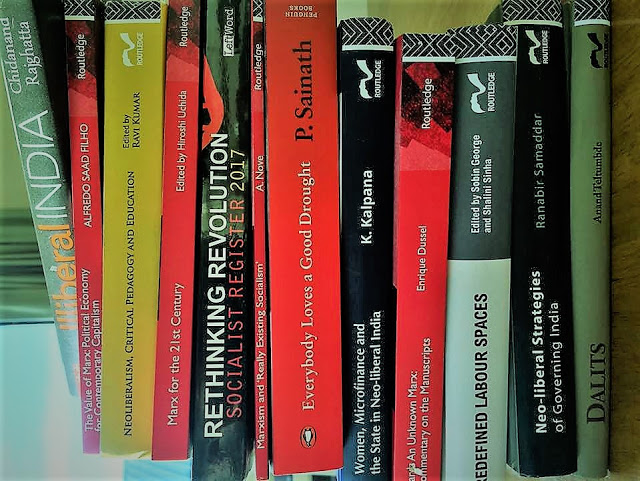
In the land where the regime dictates what academics will read, what they will write, and where they will write, bureaucrats in universities serve as gatekeepers of the regime.
With their bureaucratic tools, often decorated in neoliberal logics of risk management and performance optimization, managers define the boundaries of thought for academics, defining the limits and terrains of thought, legitimizing state control in managerial logics.
Bureaucrats ask questions such as: How are these books relevant to your research? How do the books contribute to your research program?
The definition of the research program of an academic based on bureaucratic rationality becomes the basis for identifying the relevance of reading lists to research programs. Once the appropriate reading list to be read from is defined, the regime can then exert its control on the academic for deviating from the reading list. The tools of the manager are also the tools of the regime.
Consider for instance the above reading list that offers important anchors for how I am currently thinking about how the CCA is evolving, particuarly in its work with subaltern communities in their struggles for communicative spaces for articulating voice. When a scholar working on the CCA, which was initially articulated in the context of health, is asked the question: Why are you reading these books, the implication is that the reading of Marxist texts is irrelevant, wasteful, subversive, and even seditious.
Once these labels have been imposed, university and state regimes can then work toward marking the scholar, initiating disciplinary processes, subjecting the scholar to police harassment, and even jailing the scholar.
As we have seen with the recent police harassment of scholars in India by marking them as Naxalites, the targeting of reading lists was a key element of the strategies of harassment. To own a copy of Marx or Mao is enough to invite violent forms of state control, harassment, and repression.
In this backdrop, academics have key roles to play globally in protecting our reading lists, in our research programs, in our classrooms, and in our homes. We need to be actively engaged in organizing our universities as spaces of knowledge creation that are free from bureaucratic diktats and state interventions. That bureaucrats and mandarins of authoritarian regimes have no business interrogating our reading lists is a key anchor to transnational academic politics.
